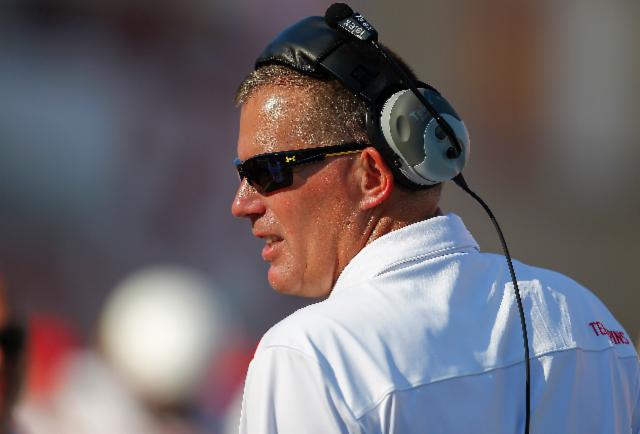Last week, University of Connecticut head football coach Randy Edsall pulled a verbal scholarship offer to Ryan Dickens, a high school senior, with just 17 days left in the college recruitment process. Since then, several media sources have described Randy Edsall’s conduct as ” dishonorable .” However, Randy Edsall and the University of Connecticut’s conduct may have been far worse than that. By rescinding a verbal scholarship offer to a student at the very last minute — especially after purportedly unambiguous reassurances — the UConn football coach may have even exposed his university to the reasonable risk of civil liability.
Under the general doctrine of contract law, it is extremely unlikely that a scorned college football player such as Ryan Dickens could bring a lawsuit against a college that failed to honor its verbal promise to him. It is widely understood that the National Letter of Intent serves as the contract between college athletes and their universities and not any preliminary oral agreements.
Nevertheless, under an entirely different legal doctrine — known as promissory estoppel — the victim of a broken business promise may state of claim for civil liability if the victim can show that a promise was intended to induce reliance, does indeed induce reliance, and a binding injustice can be avoided only be enforcement of the promise.
To make a claim for promissory estoppel, courts generally require a plaintiff to state five narrow elements: (1) a promise by one party; (2) extreme reliance on that promise; (3) a reasonable basis for reliance; (4) a legal detriment suffered as a result of reliance; and (5) some level of unconscionable conduct or binding injustice.
University of Connecticut head football coach Randy Edsall rescinded football players’ verbal scholarship offer with just 17 days left in the recruiting process (Photo by Michael Hickey/Getty Images)
Although promissory estoppel claims are rarely successful based on the fourth and fifth elements above, the peculiar nature of Ryan Dickens’s situation may make this case an exception to the general trend.
With respect to the element of a “legal detriment,” Ryan Dickens suffered far worse than just hurt feelings based on UConn rescinding on its repeated promises in his failure to pursue other academic and athletic opportunities. Although Rhode Island ultimately offered Dickens a college football scholarship, if Dickens had not reasonably cancelled his full college search upon the University of Connecticut’s repeated promises, Dickens may have landed at a college with a substantially higher average graduate salary than the University of Rhode Island.
In addition, one could also make a strong argument that the University of Connecticut’s rescinding of Ryan Dickens’s scholarship was legally unconscionable or at least yielding of a binding injustice. Some factors that differentiate UConn’s conduct from most other cases where a verbal job promise has been rescinded include the particular nature of the wrongdoer (this was a public college, not a used car salesman), the impact of UConn’s actions on a potential student’s educational opportunities, the harsh nature of the NCAA Principle of Amateurism which prevents rival colleges to the University of Connecticut from adding an extra football scholarship to meet Dickens’s needs, the extremely late timing of UConn’s change of heart, the purported repeated assurances that UConn would honor the promise, and Dickens’s young age.
More likely than not, Ryan Dickens and his family will simply move on with their lives and not pursue legal action against the U niversity of Connecticut. Filing a lawsuit is both expensive and time consuming, and it could expose the college freshman to more media scrutiny than he wants at this time in his life.
Source: www.forbes.com




